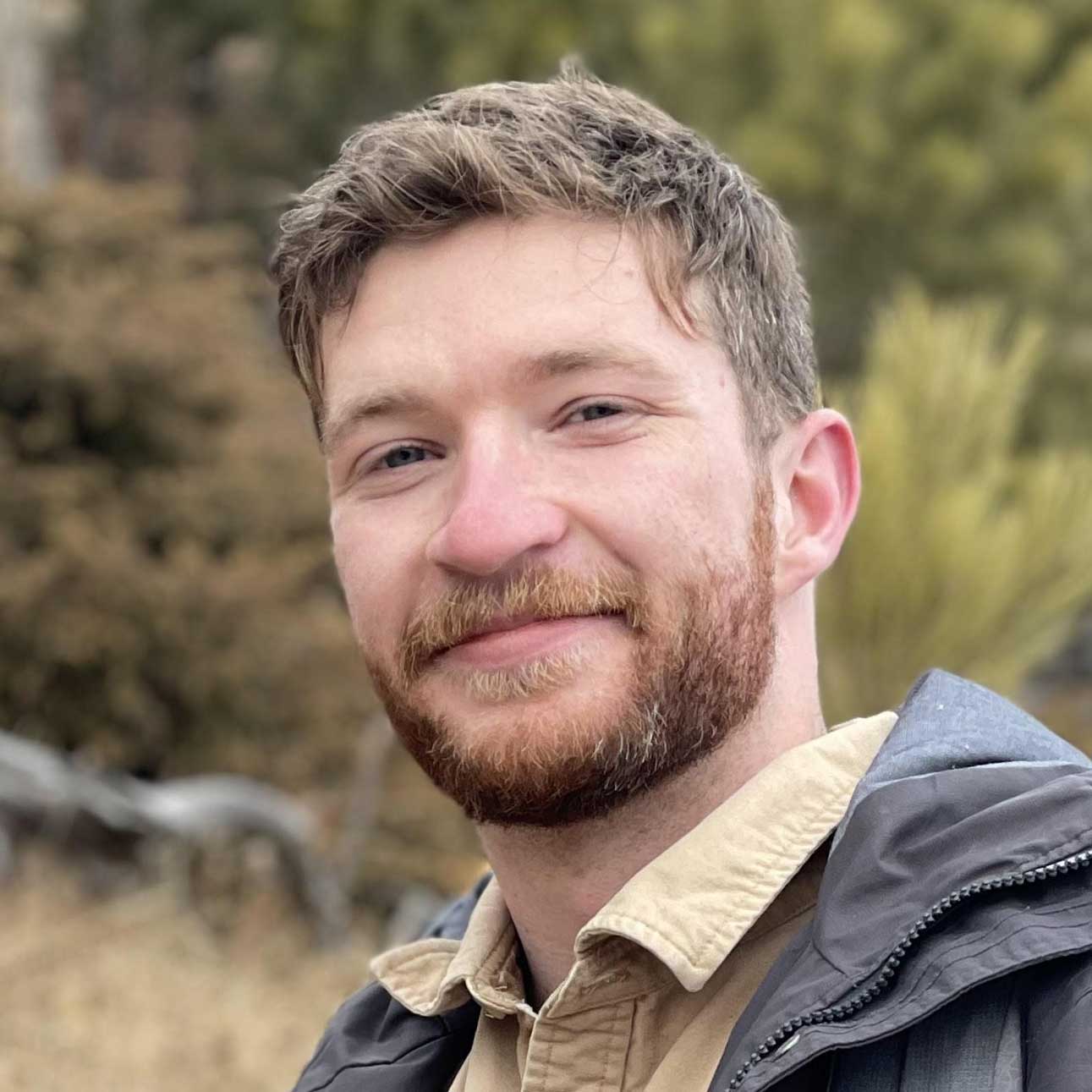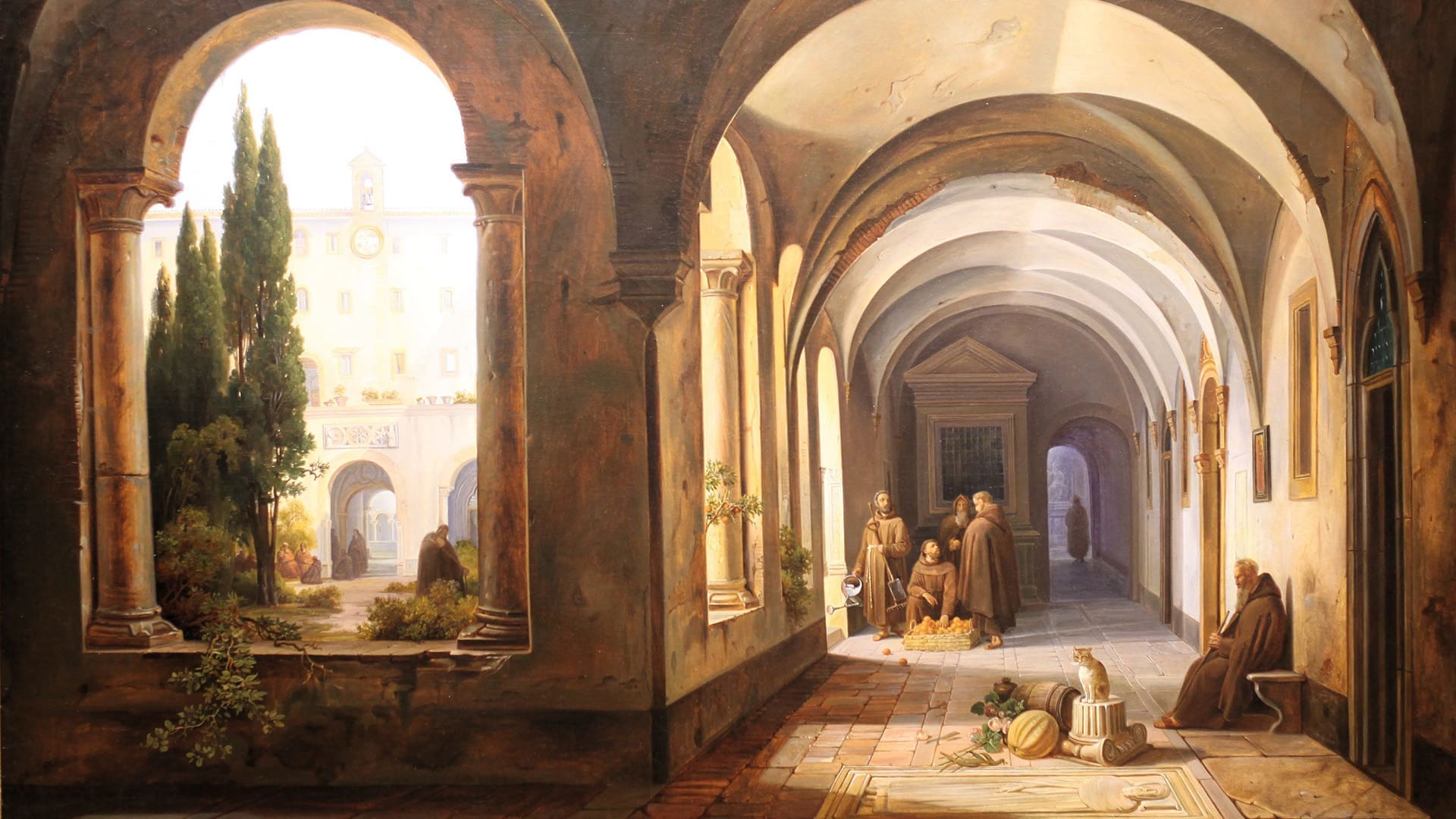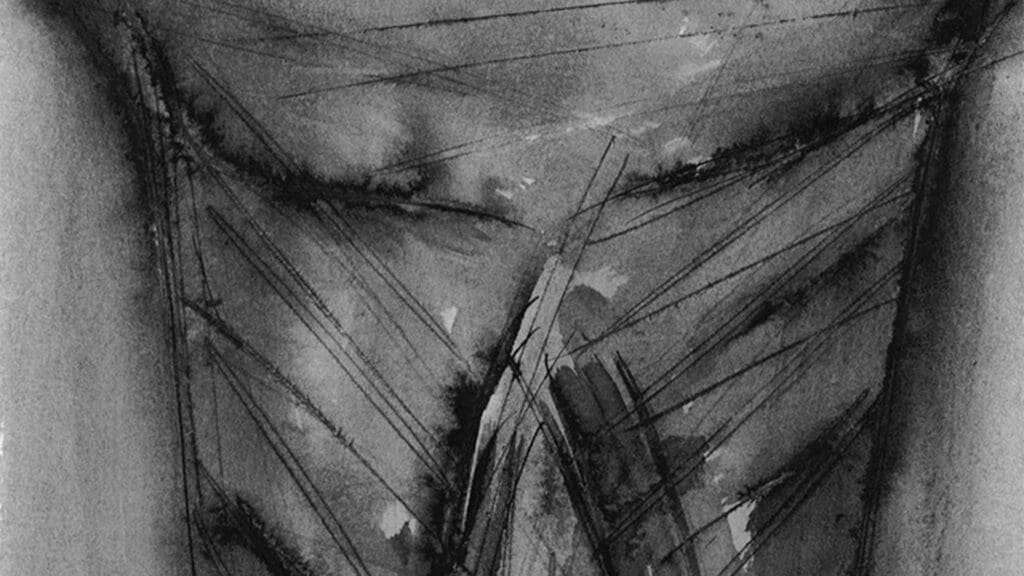T
There’s something about America today that doesn’t jibe with the male psyche. Just look at our morgues. Men account for four of every five suicides and about three of every four overdoses. Every five minutes an American man dies one of these “deaths of despair.” That is more dead men in just the last year than perished in the entire Vietnam War. Men also make up more than three-quarters of homicide victims. That’s just death. For the living: working men have had declining wages for decades, have been doing worse in school, and have an increasingly lower likelihood of graduating college. On top of this—and likely because of it—many men suffer from mental illness in silence.
A few years ago, raising concerns about the fate of men in our society might get you laughed at or lumped in with the online “manosphere” influencers. Richard Reeves, formerly of the Brookings Institution, has done a great service in making it acceptable for good liberals to take the suffering of men seriously with the establishment of the American Institute for Boys and Men. Reeves offers some policy recommendations that make good sense. For instance, since boys’ brains mature differently from girls’, he suggests putting boys and girls on staggered educational schedules. And given that a present, involved father makes a significant difference on the life outcomes of a child, Reeves advocates for better paid family leave.
Such arguments are welcome and much needed, but, as Reeves himself has gestured, when it comes to boys and men, we are not just dealing with a medical or political problem; we are dealing with a psychic and moral wound. The rites of manhood, so universal until recent times, are a rarity now, and the role of father and provider is not the given it once was. Men have become a question to themselves in a new way, and to provide good answers we need a better understanding of what men are and what they are good for. Ours is not the first period in which men have faced questions like these. Traditions of monasticism that developed in the wake of the collapse of Rome hold keen psychological insights that still matter today. In these traditions we find useful ways of thinking about what men really need to become good.
The Matter of Man
Over a hundred years ago, William James, the father of American psychology, argued that men need a “moral equivalent of war.” To retain virtue, James thought, men needed the soul-shaping force of military life without war’s destructive consequences. Writers have sought to trace the rise of the problem of manliness in the modern world to the men’s movement of the 1980s and 1990s, but the history is longer and more complex. In fact, James was writing in 1910, and the Victorian society in which he grew up was already concerned about the fate of men in an industrializing, globalizing, automating economy. The 1890s also saw rising unemployment and a vast opioid crisis. Certain military men felt that their fellow citizens were becoming soft and that only the influence of war, with its discipline and its call to self-sacrifice in the service of higher ideals like courage, honour, and valour, could shape men away from loose and pathetic living and toward excellence.
James agreed, at least in part. He foresaw the economic trends of his time leading toward a new “economy of pleasure,” in which men would lose their self-sacrificing purpose, and therefore their virtue, in favour of a life of ease and hedonism. This is why James, a pacifist, sought something that could equal war’s formative effects without the bloodshed.
But a vision of good manhood, however implemented, must answer the question “What is a man?” This question admits of one easy answer and one harder one. The first is that a man is simply a male of the human species. This tells us something, but it does not tell us much about how he ought to live. We know we are males, but we often do not know if we are really men, because that latter word carries a moral weight as well as a biological one. Nowadays it is considered improper to tell someone to “be a man,” but the compelling force of that command is still felt in our hearts, even if we are unsure what it means or how to feel about it.
There is a spectrum of visions for manhood on offer today. I want to describe the two ends of that spectrum. These are not descriptions of real individuals but illustrations of opposing trends. Then I hope to present what I consider a fuller ideal of manhood.
First, the tough guy. We all know this stereotype, which lives in our collective consciousness. The tough guy likes sports, is strong and athletic, doesn’t cry, doesn’t talk about feelings, doesn’t mess around with poetry or ballet. He is handy, can get women, knows about cars, and stands his ground.
We feel this man inside us, judging us for being inadequately manly, especially when we are young. Do you like theatre, dance, or art? Are you clumsy and the last to be picked for sports? Are you shy or emotional? You might feel this inner tough guy mocking you. Maybe he looks like your dad, or a teacher, or a coach, somebody for whom you are never enough. For many men this tough guy leaves festering wounds of inadequacy and insecurity that can lead to all kinds of pathological behaviours.
This tough guy is mostly an archetype, more common in film than in the world of complicated human beings. At his best, this character can keep us from becoming too inward, self-pitying, and small. At his worst, he becomes a tyrant setting arbitrary rules, whose commands make us bitter and resentful of manliness altogether.
Second, on the other end of the spectrum, the sophisticated ally. He has heard all about how bad the tough guy is. After letting the tough guy make him feel inadequate for too long, he’s ready to turn the tables.
The ally tends to talk down his own sex in an effort to set him apart from the negative strands of masculinity. In keeping with prevailing theories, he takes manhood to be a certain kind of social performance and sees himself as having transcended it.
At his best, the ally calls out the rigidity of the tough guy, his posturing and machismo, and makes room for wider interests and expressions. At his worst, he leaves behind traditional manhood only to embrace what James called the “economy of pleasure”—that is, a rejection of the conception of manhood as self-denial, provision, and protection, and the embrace of a “do what feels good” morality.
Paradoxically, this man can turn out to be as much a misogynist as the worst tough guy. Believing that he has established himself as the right kind of ally, he may believe that he is deserving of attention and sexual engagement from the opposite sex. Without the strictures of traditional manhood, he may be involved with many women, without any notion of commitment, obligation, and provision. That is to say, he may have a one-night stand, but he isn’t going to pay for dinner.
Then there is the full man. The two stereotypes are just that, stereotypes. They do not describe the complexity of real men, but I hope they are illustrative of certain psychological trends. For a long time, we have been looking to deconstruct manliness, to question the tough guy, and to liberate men from the limiting expectations of rigid masculinity. But we haven’t filled the void with anything better.
Some of this deconstruction has done a great deal of good. We are more open about how we talk about men’s mental health struggles, and our expectations about how men should dress or what they should be interested in are less narrow. But things don’t get better if we just knock down the old idea of manhood. Men remain. Men will still have their strength and size, their speed and stamina, their aggression and sexual drive, their less natural touch with emotion, and their unique ways of handling and interpreting information. Each of these qualities may be turned to good or to ill. A moral ideal of manhood seeks to properly humanize these things and put them at the service of gentleness and goodness. Failing this, strength, size, speed, aggression, and active sexual desire remain—but untutored and undisciplined.
We cannot have mere meekness without manhood, and we cannot have manhood without tenderness and mercy.
We cannot throw the baby of manhood out with the bathwater of machismo. Men need something to which they can aspire, and if we want better men, we need to offer something attractive and positive, not mere criticism, or men will turn toward the crude, amoral masculinism of someone like Andrew Tate. What I am calling the full man might be the older ideal of the gentleman. Of course, this latter term can carry its own negative connotations, but if we can divest it of its sense of aristocracy and entitlement, the etymology will do us well. What we want is a gentle man. We cannot have mere meekness without manhood, and we cannot have manhood without tenderness and mercy.
I think here not of an “English gentleman” but of the gentleman of the Chinese philosophers Confucius and Mengzi, who transformed the concept of nobility away from social status and toward truly humane moral goodness. The junzi, as they called him, is the man who has disciplined his energies, ambition, urges, and aggression for the sake of the community. Such a man aspires to great things by wishing great things for others. He uses all aspects of his distinctive manliness to fulfill his roles as son, brother, father, citizen, protector, and builder. He influences not by domination but by his goodness.
This Chinese vision of the integrated man, both iron and disciplined on the one hand and gentle and patient on the other, finds a harmonic resonance with the Christian monastic tradition. When the Jesuits came to China, figures on both sides rejoiced at the similarity of the moral injunctions of church fathers and Confucian sages, “like rivers flowing to the same sea,” as one Chinese poet said. Christian monasticism, not uniquely, but especially, cultivated a tradition of practice for achieving this form of healthy manhood. It is not an accident that this tradition produced the man who would become known as the “gentleman saint,” St. Francis de Sales, who embodied many of these ideals. It is to the monastic tradition that we should turn in pursuit of a model for how good manhood can be cultivated, inculcated, and passed on.

Monastic Insights
In the rubble of a decaying empire, the lost young men of Italy and beyond found a path to meaningful manhood in the monasteries. The Rule of Saint Benedict, which became a key reference point for the tradition of monkhood that flowed from it, contains sharp and enduring psychological insights into the process of taking the raw material of masculinity and shaping it into good manhood. The Rule lays out what I identify as three key developmental strands that are lacking in our culture today: fatherhood, brotherhood, and discipline.
First, fatherhood. Manhood is passed in only one real way: from man to man. Young men are full of extravagant impulses: ambition, sexual urges, a desire for glory. Their wills tend to be unruly, leading to destructive consequences. Like malamutes on a sled team, men need to be yoked to a lead dog who can unite their wills and impulses in the right direction. Without good leaders, young men will find bad ones.
“As soon as any order has been given by a superior, as though it were the order of God, the brothers can make no delay in carrying it out,” says the Rule of Saint Benedict. “Therefore, these brothers, at once relinquishing what they are doing, desert their own will and quickly freeing their hands by leaving unfinished what they were about, proceed with the foot of ready obedience to carry out the order given.” This is not an arbitrary power grab on behalf of an elder; rather, it is an acknowledgement that novices need direction, and the monks elect the man they believe to be the wisest director. It is a recognition that our wills get us into trouble and that a man further down the road knows the way better than we do. There is a world of difference between tyrannical domination and willful obedience. The first is mere imposition; the second is a voluntary acknowledgement of good leadership.
Saint Benedict warns against men who “with no experience to guide them, no rule to try them as gold is tried in a furnace, have a character as soft as lead. . . . Without a shepherd, they pen themselves up in their own sheepfolds, not the Lord’s. Their law is what they like to do, whatever strikes their fancy. Anything they believe in and choose, they call holy; anything they dislike, they consider forbidden.” Our society may not give as much credence to “the law of the Lord,” but we can recognize the portrait Benedict paints of the self-willed man who sets his own law based on his desires. This is the shepherdless man, the hedonistic man, the destructive man. The difference between a young man who goes on to be a good father and a leader in the community and a man who takes advantage of others while contributing nothing can be as simple as a good coach, pastor, teacher, boss, or father. Failing this, we men often tend to egg each other on to our worst impulses.
Cultivating good young men requires that we support structures that prioritize male-to-male mentorship. Good fatherhood is essential to raising strong and secure daughters, but there is a distinct and special means by which a man leads a younger man. Literal fatherhood, of course, is best suited to this, but any kind of mentoring in virtue embodies the same spiritual role. This is why the celibate abbot can be called “father” too. We need to think seriously about how we can revive the male spaces that can make mentorship more equitably available. It is not only the underprivileged who need this guidance, but all of us.
Concomitant with the fatherhood of the monastery is its brotherhood. The biblical maxim that iron sharpens iron applies here. Obviously, camaraderie alone is not enough for good manliness. Men form relationships in service of all kinds of wicked causes, and this works only to amplify men’s wickedness. But the desire for brotherhood is inevitable and needs to be turned for good if it is not to turn to evil. This is what the monastery provided. The Rule of Benedict calls on the brothers “gently to encourage one another as they rise for the Work of God.” By intentionally living among brothers with a common vision, men set a higher standard toward which they could encourage each other and against which they could measure themselves. This esprit de corps that bonds military brethren is needed by all men. Erik Varden, a Trappist monk and the bishop of Trondheim, Norway, references Proverbs in this regard: “A brother who is helped by a brother, is like a strong city.”
The absence of brotherhood kills a man’s spirit, the absence of a common and worthy goal drains his motivation, and the lack of a guide leaves him directionless.
Brotherhood, of course, can be false and wicked, as in the hazing culture of fraternities or the violence of gangs, and that is why good brotherhood is needed. At the same time, part of our current problem is that many men lack any real brotherhood at all, which exacerbates deaths of despair. The absence of brotherhood kills a man’s spirit, the absence of a common and worthy goal drains his motivation, and the lack of a guide leaves him directionless. Too many men of good potential have died from a pill or by their own hand for lack of these things. These are by no means the only factors. Genetic predispositions, bad luck, childhood trauma, and many other problems play an important role, but it is often said in the world of addiction counselling that connection is the cure. This is why brotherhood is so important. Saint Benedict describes the ideal of supportive fraternity: “This, then, is the good zeal which monks must foster with fervent love: They should each try to be the first to show respect to the other, supporting with the greatest patience one another’s weaknesses of body or behavior, and earnestly competing in obedience to one another.”
Finally, there is the life of abstinence, of asceticism, of discipline. The economy of pleasure turns us inward and makes us small, focusing our attention on ourselves and not toward something that transcends us. It makes us less capable of enduring hardship, withstanding temptation, and making worthy and difficult sacrifices. The monks knew that asceticism is not small; it is not a simple refusal of good things. Rather, it is a way of disciplining the soul and a chief weapon in the battle against the self. “Nothing is so inconsistent with the life of any Christian as overindulgence. Our Lord says: Take care that your hearts are not weighed down with overindulgence.”
Online influencers are rediscovering this today. Cold plunges, abstinence from porn, and even fasting have become more popular among men. While the great majority of them still indulge in the decadence of the pleasure economy, men are denying themselves in greater numbers than before. There is a risk that these denials can become a proud form of competition, but this is the place of the brotherhood and the abbot: to check the wayward novice. Such denials allow us to build up the muscle of will that can withstand temptation and the ability to tolerate bad situations. They also freshen us for the enjoyment of what is truly good. When we satiate ourselves with pleasure, we enter the hedonic treadmill, on which nothing is ever enough.
If a man cannot deny temptation, he is bound to hurt others, either through greed, pride, or lust. If he can withstand the temptation of food or warmth, however, he will have a better chance at withstanding the temptation of sexual aggression, anger, or other kinds of violence. If a man enters the hedonic treadmill, he will destroy a great deal on his all-consuming search for pleasure. If he disciplines himself, he will know what it means to be content with good things; he will honour his family and friends and will not disgrace himself.
Good Timber
When I was in school, we had a young teacher named Adam Storey, who had been in both military life and seminary before getting married and coming to our school. Adam was like an older brother to many of the young men at school, and I could rattle off the names of the boys whose paths to manhood he shaped for the better. He had a simple formula for the duties of manhood: protect, provide, and establish.
We are hesitant about anything normative today, but we ought not to be. Being a good man means certain things and not others. A story will help show what I mean. In the nineteenth century, there was a chief of the Crow Nation named Plenty Coups. In his lifetime, the traditional ways of the Crow were disappearing, and along with them the normal markers of manhood and manly virtue. No more would a brave show his prowess in war, or his strength expanding the borders of the tribe, or his knowledge in leading it to new hunting grounds. Plenty Coups had to engage in an extraordinary act of moral imagination: How could the virtues of Crow manhood be transposed into a new time and new circumstances? He inspired his men with the hope that they could still protect, provide, and establish. He protected the tribe from government trickery and allowed them to obtain their land; he established a new pattern of livelihood; and he provided his people with land that was good for growing food, no longer just by the way of the crow, but by the quieter way of the chickadee.
We don’t need to think narrowly about these roles, as if they are forever set in a hunter-gatherer context or the world of the 1950s. These roles shape men across cultures and times. Protecting, providing, and establishing have their dark opposites: aggression, theft, and destruction. Men’s physicality and psychology make us especially suited to these as well. Moral formation is thus necessary. We must learn how to protect, provide for, and establish our families and communities—not to the exclusion of women, but in a way shaped by our distinct manhood, adaptable to changing circumstance, and generously harmonious with the contributions of womanhood.
Technocratic policy solutions will not be enough. Criticism and cynicism will not be enough. Sophisticated allyhood will not be enough. Tough-guy machismo will not be enough. Men are like timber. Will they be shaped into good, sturdy beams and joists that will shelter, support, and protect? Or will they shape themselves in their own wild ways, producing knotty, weak, and crooked lengths that don’t do anyone any good?
We need the moral equivalent of monasticism. This does not mean everyone has to run off and join a monastery (though I won’t complain if you do). What it does mean is that we need to be intentional about cultivating male spaces for brotherhood and mentorship in the path of virtuous living, something we are sorely short on. Does this look like a creative revival of fraternal service organizations? Does it look like religious revival movements, or perhaps mentorship programs in schools, on sports teams, in the Boy Scouts, or in positions of service? Professional apprenticeships? All of the above. Whatever form it takes, it is imperative that we get creative, because young men are full of great potential to build or to destroy. In a culture in which morgues are filling up with male bodies, let’s do all we can to help them live well and build.
Our men must be gentle, and they must also be men. The idea of a gentle man embodies a fullness of vision that embraces all that is positive in men, including their unique ways of displaying gentleness, tenderness, and charity. We cannot have one without the other. We Christians have an exemplar in Saint Joseph, that rebuke to all pride and bombast, that humble, merciful, quiet working man who guarded the Holy Family and had the vocation of being father and teacher to the Son of God. The tradition of Joseph and the tradition of the monastery embody some of what is best in the combination of manhood and gentleness for all men. When you encounter a man like this, you are struck by his great beauty. This is not idealistic or sentimental—it is a vision men need.





